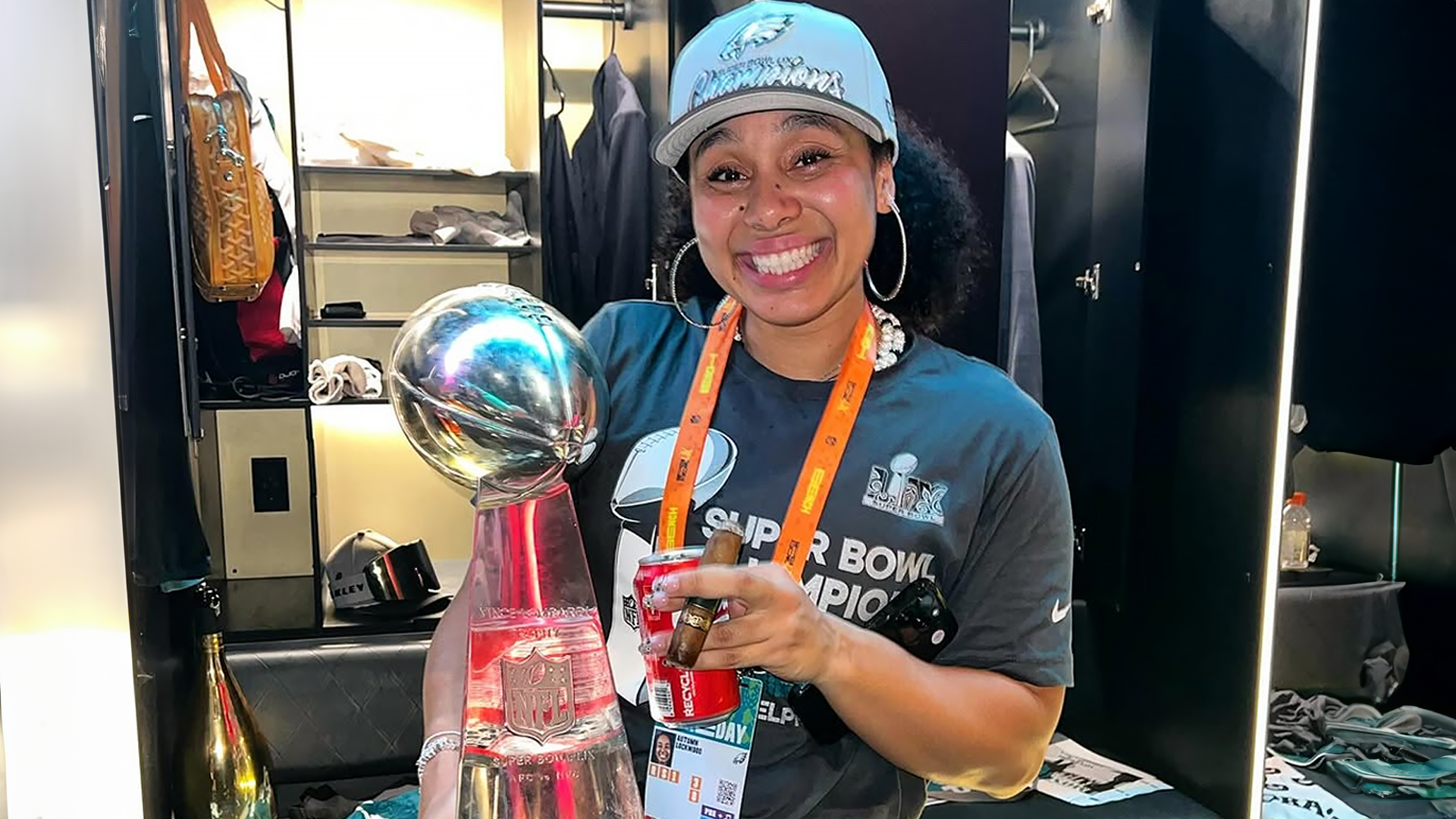The first Black woman to a coach a team to victory in the NFL’s biggest game, Lockwood’s win is a triumph worth celebrating – and a reminder of the barriers still left to break.
Autumn Lockwood, the Philadelphia Eagles’ associate performance coach, is the first Black woman coach to lead their team to a Super Bowl win. That’s a big deal, not just for her, but for the entire sporting world. To put it simply, Lockwood has officially made history.
The NFL has been a notoriously exclusive club when it comes to race and gender, and while progress has been made in recent decades, leadership coaching roles have remained overwhelmingly white and male.
Back in 2023, Lockwood became the first Black woman to coach at a Super Bowl when the Eagles took on the Chiefs. And her presence within the American Football sphere signals that change is happening – albeit slowly.
A former Division soccer player with a master’s degree in sports management, Lockwood has spent her life working in strength and conditioning, earning her place in a field that still offers limited opportunities to women.
Her journey speaks to relentless dedication and expertise. Within a year of joining the Eagles in 2022, Lockwood was standing on the sidelines of one of the biggest games in the global sporting calendar.
‘I am constantly finding ways for athletes to get stronger, faster, and be able to move efficiently,’ Lockwood writes in her Linkedin profile, speaking to her the core of her work as a conditioning coach; helping others to find their strength.
Last year, she spoke to the NSCA Coaching Podcast about the mentality it takes to get to where she is. It’s a journey that’s taken her from former criminal justice student to NFL legend at just 31.
‘Getting in the door, it’s all about that opportunity and what you do with that, and how you show up everyday… Once you’re there, it’s really, Okay, I’m going to observe everything. I’m going to be a sponge. I’m going to be so hands-on. I’m going to be an extra set of hands. I’m going to do everything that I can to help this team, this staff, all these departments that go into building a championship culture,’ Lockwood said.
Mission accomplished.




















